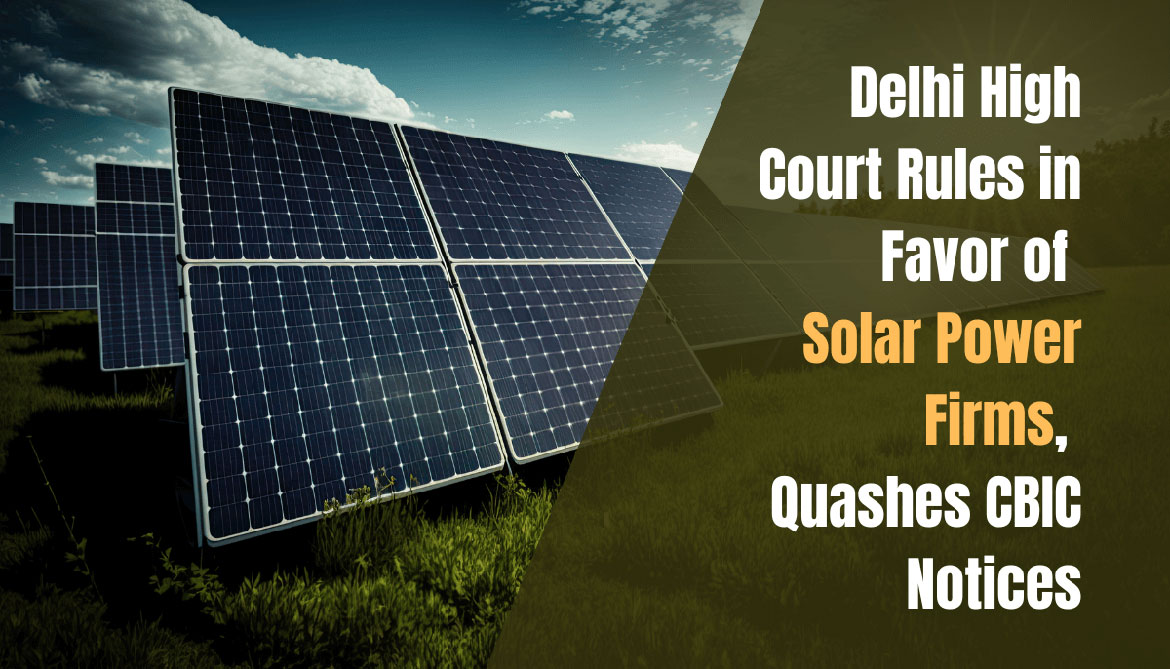Delhi High Court Rules in Favor of Solar Power Firms, Quashes CBIC Notices

In a significant development for the solar power sector, the Delhi High Court has delivered a verdict favoring solar power firms, thereby nullifying show cause notices issued by the Central Board of Indirect Taxes and Customs (CBIC). This ruling holds pivotal implications for the eligibility of solar power developers to benefit from the Manufacturing and Other Operations in Warehouse Regulations (MOOWR) scheme.
What is the MOOWR Scheme?
The MOOWR (Manufacturing and Other Operations in Warehouse) scheme, instituted in 1996 and revised in 2019 to align with the ‘Make in India’ initiative, promotes domestic manufacturing and production. It facilitates the deferral of customs duty on imports of goods utilized in manufacturing processes. However, a contentious debate emerged over whether solar power firms could avail themselves of this scheme.
The CBIC’s stance on solar power developers’ eligibility for the MOOWR scheme led to the issuance of show cause notices (SCNs) for alleged non-payment of duties. These notices triggered a legal confrontation, culminating in the case of ACME Heeragarh Powertech Pvt Ltd vs. CBIC, which became the focal point for the judiciary to adjudicate upon this matter.
The Verdict and Its Ramifications
The Delhi High Court’s ruling has effectively quashed the SCNs, affirming that solar power firms do fall within the ambit of the MOOWR scheme. This landmark decision grants solar power developers importing panels and modules the opportunity to leverage the benefits of the MOOWR scheme. Specifically, it allows them to defer the payment of 44 percent customs duty and 12 percent GST until the imported equipment is operational for electricity generation.
The MOOWR scheme plays a vital role in the operations of the solar industry by facilitating the importation of inputs and capital goods for power generation within the country. However, ambiguity arose when the Customs Department issued a circular questioning the eligibility of such companies for the scheme, sparking uncertainty within the sector.
In response to the CBIC’s notices and subsequent circular, ACME Heeragarh Powertech Pvt Ltd initiated a legal challenge by filing a writ petition. This legal maneuver ultimately led to the Delhi High Court’s ruling, which definitively established the eligibility of solar power firms for the MOOWR scheme, providing much-needed clarity and relief to the sector.
The Delhi High Court’s verdict in favor of solar power firms signifies a crucial milestone in the ongoing dialogue surrounding the MOOWR scheme’s applicability. By upholding the eligibility of solar power developers for this scheme, the judiciary has not only resolved a contentious issue but also bolstered the prospects of the solar energy sector in India, aligning with broader objectives of promoting domestic manufacturing and sustainable energy generation.
